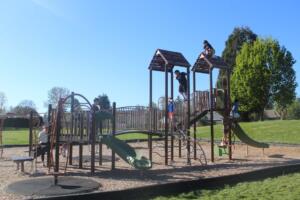It’s a few days after Thanksgiving and volunteers inside the Inter-Faith Treasure House are doing what they do best: helping struggling families make ends meet.
Some prep clothing donations for the Treasure House’s on-site thrift shop, while others fill food boxes with frozen meats and donated baked goods.
The nonprofit calls itself “the safety net of the community,” and its statistics bear that out — during a typical month, Treasure House distributes 60,000 pounds of food and serves 500 free meals to the area’s hungry, and provides emergency rental and bill assistance to about 10 families in crisis.
“So many different people come through here,” says Treasure House Executive Director Nancy Wilson. “The needs vary. Sometimes, their hours have been cut at work and they can’t pay the bills, or they’re hungry.”
Dave Pinkernell, president of the Camas-Washougal Community Chest, which awards grants to nonprofits that directly help Camas-Washougal families, says the Treasure House, with its cadre of 150 dedicated volunteers and ability to stretch a dollar, has impressed Community Chest board members over the years.




